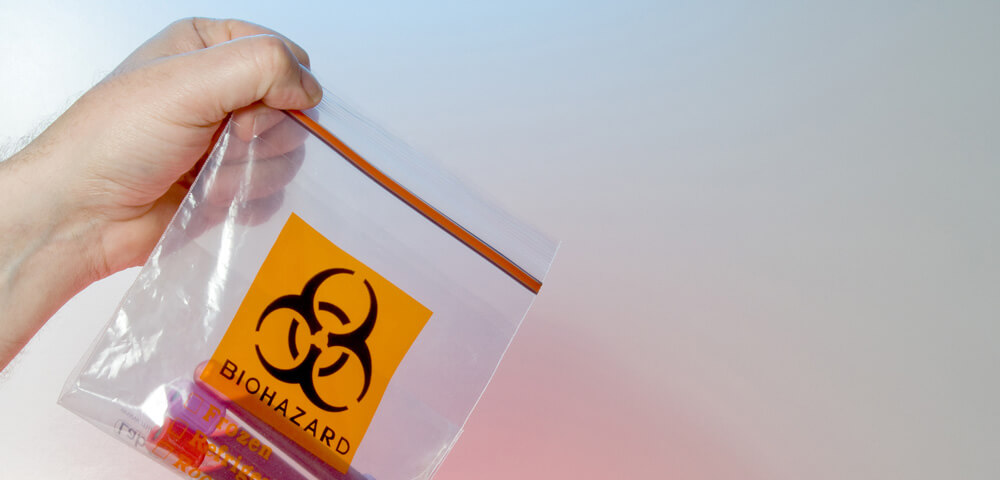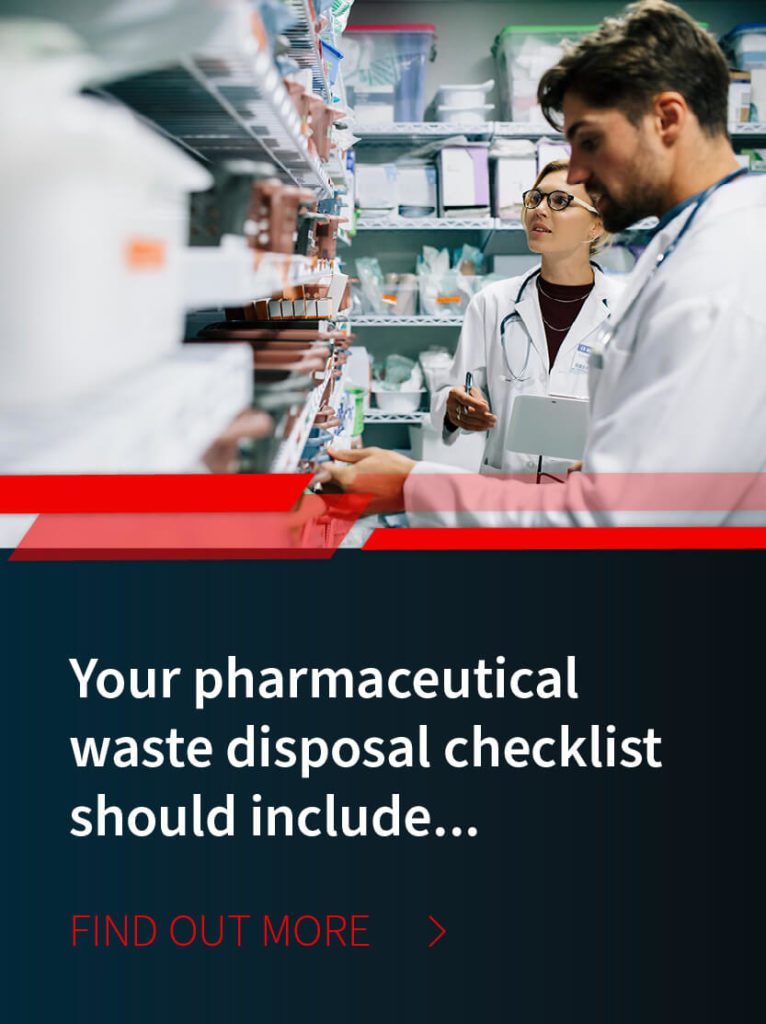
The rules surrounding biohazardous waste disposal have changed dramatically over the past forty years. As people become increasingly aware of the dangers associated with improper disposal and as laws regarding that disposal become increasingly strict, more and more people are learning about the implications of not knowing or following these rules. There are, of course, legal implications, but there are also safety issues to consider. Therefore, if you run a clinic, doctor's office, dentist's office, veterinarian clinic, or a fully functioning hospital, it's crucial that you both learn this information and put it into practice daily at your facility.
Biohazardous Waste Disposal: Proper Disposal Information for Doctor Offices and Hospitals
What Is Biohazardous Waste?
This type of waste steam is known by many names in the medial industry. If you're not familiar with this particular terminology, you might be more used to "regulated medical waste," "red bag waste," or any other number of variations on that term.
Generally speaking, biohazardous materials constitute solid waste generated in the treatment, production, diagnosis, or testing or anything biological.
The most common items that fall under this umbrella are anything contaminated with blood, other biological material, or other potentially infectious materials.
Legal Implications for Biohazardous Waste Disposal
When discussing why disposal of this material matters, the first (and perhaps most obvious) reason is that it's the law. It is federally mandated that no biohazardous waste can be improperly disposed of. What exactly constitutes improper disposal, though?
For one, these items can never go in the standard trash.
While there is a gray area—to some degree—when dealing with blood-contaminated items (that is, how much blood is enough blood to constitute the infected item going in a red bag), in general, it is the hard-and-fast law that any bloody gauze, gloves, masks, gowns, or other items must be properly disposed of.
Safety Implications
The other obvious reason that this proper disposal should be important to your facility is because of the health risks associated with improper disposal. Biohazardous matter is potentially infectious, and if it finds its way into the general waste stream without being properly treated first by a medical waste autoclave, it's conceivable that somebody could become ill or his or her health could be otherwise threatened by contact with that waste.
The other major safety issue relates to proper sharps disposal. If you don't put your used sharps in a puncture-resistant sharps container, you run the risk of somebody getting stuck by one of those blood-contaminated needles, syringes, scalpels, etc.
Who Does This Law Affect?
If you're in the medical field in any capacity—from veterinarians to dentists to surgeons—it's very likely that your facility produces biohazardous material.
If you're at all unsure of the laws that regulate the disposal of this waste and you think you might produce this waste at your facility, it's imperative that you contact a professional, reputable, and knowledgeable medical waste management company.
Even if you don't end up ultimately needing the services of that company, you can have peace of mind knowing that you've consulted a professional and received credible, trustworthy advice about how best to proceed.
Why Work with Medical Waste Management Companies?
Because of the potentially punitive actions for noncompliance (steep fines, loss of licenses, or, in the most extreme cases, even jail time), it's important that every medical facility reach out to an experienced, knowledgeable waste management company to ensure each step is being properly followed according to both state and federal laws.
Remember, not being aware of the laws or not being aware of what you needed to do to comply is never a valid excuse. You are expected to know and follow the legal rules. So, if you're unsure, seek out professional advice.
What to Look for with Your Waste Management Provider
There are a laundry list of things you want to ensure your provider has, such as insurance, legal permitting, and years in the industry.
However, one often-overlooked characteristic has to do with customer service. You want a company that is dedicated to the idea of educating its customers. If you have a waste-related question, you want to work with a company that is not only willing to answer that question, but has cultivated a culture of doing so thoroughly and accurately.
When you choose a waste management company that focuses on educating its client base, you are simply more likely to find yourself in compliance with all required laws because the company has taken the time to answer your questions and ensure you're not inadvertently breaking those rules.
You also want to lean toward a local waste management company. Working locally gives you a better chance of being both federally and state compliant with any rules or laws that might affect your facility.
For more information about biohazardous material, whether you produce any, or how to safely and legally dispose of it, please feel free to contact a representative of MCF Environmental Services, a medical waste management company in Atlanta








